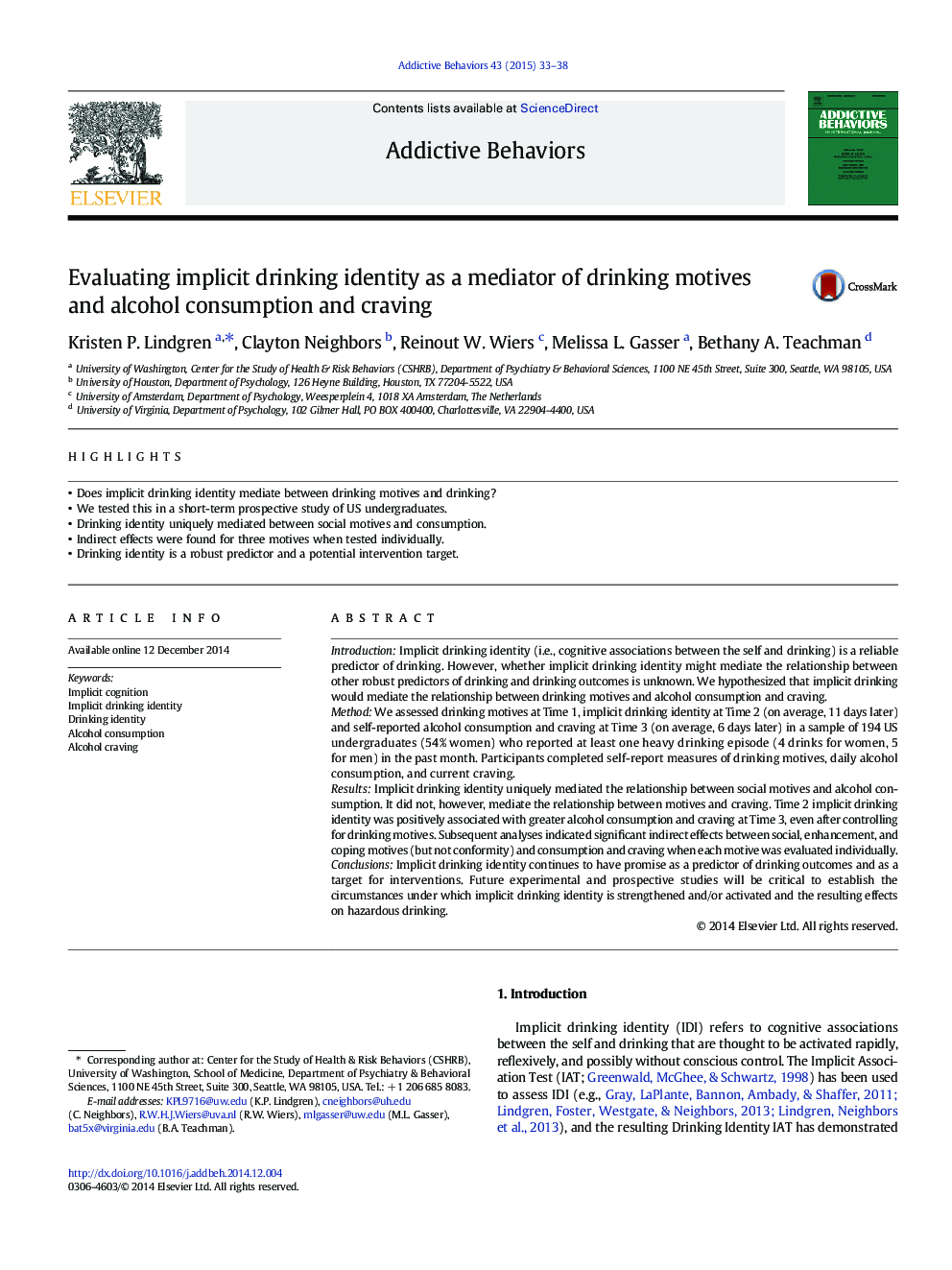| کد مقاله | کد نشریه | سال انتشار | مقاله انگلیسی | نسخه تمام متن |
|---|---|---|---|---|
| 898735 | 1472528 | 2015 | 6 صفحه PDF | دانلود رایگان |
• Does implicit drinking identity mediate between drinking motives and drinking?
• We tested this in a short-term prospective study of US undergraduates.
• Drinking identity uniquely mediated between social motives and consumption.
• Indirect effects were found for three motives when tested individually.
• Drinking identity is a robust predictor and a potential intervention target.
IntroductionImplicit drinking identity (i.e., cognitive associations between the self and drinking) is a reliable predictor of drinking. However, whether implicit drinking identity might mediate the relationship between other robust predictors of drinking and drinking outcomes is unknown. We hypothesized that implicit drinking would mediate the relationship between drinking motives and alcohol consumption and craving.MethodWe assessed drinking motives at Time 1, implicit drinking identity at Time 2 (on average, 11 days later) and self-reported alcohol consumption and craving at Time 3 (on average, 6 days later) in a sample of 194 US undergraduates (54% women) who reported at least one heavy drinking episode (4 drinks for women, 5 for men) in the past month. Participants completed self-report measures of drinking motives, daily alcohol consumption, and current craving.ResultsImplicit drinking identity uniquely mediated the relationship between social motives and alcohol consumption. It did not, however, mediate the relationship between motives and craving. Time 2 implicit drinking identity was positively associated with greater alcohol consumption and craving at Time 3, even after controlling for drinking motives. Subsequent analyses indicated significant indirect effects between social, enhancement, and coping motives (but not conformity) and consumption and craving when each motive was evaluated individually.ConclusionsImplicit drinking identity continues to have promise as a predictor of drinking outcomes and as a target for interventions. Future experimental and prospective studies will be critical to establish the circumstances under which implicit drinking identity is strengthened and/or activated and the resulting effects on hazardous drinking.
Journal: Addictive Behaviors - Volume 43, April 2015, Pages 33–38
